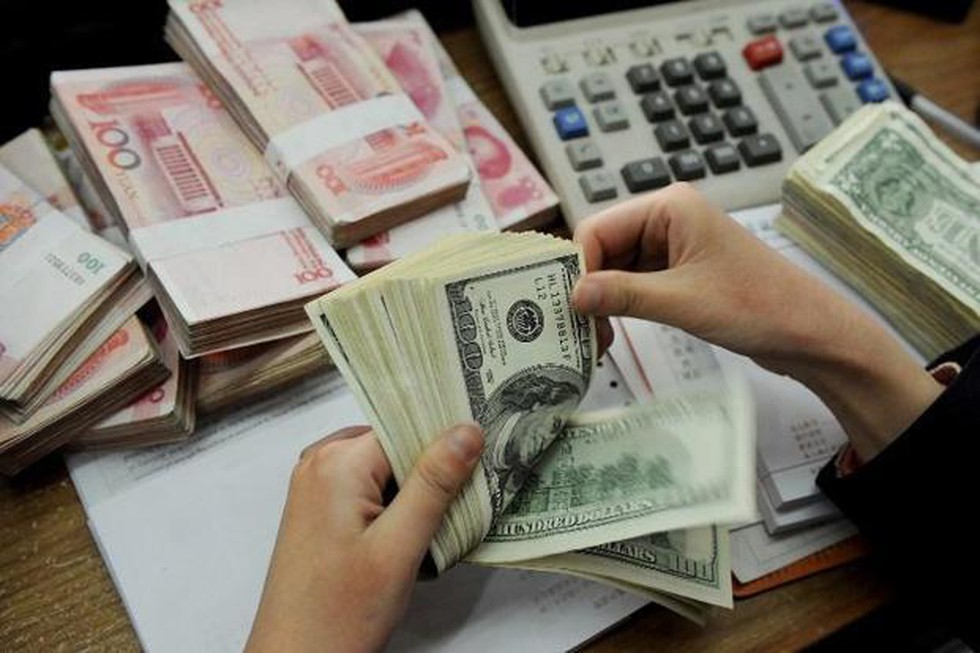
Image: vajiramias.com
In the ever-evolving world economy, nations strive to secure their financial strength and resilience. A fundamental measure of a country’s financial stability is its foreign exchange reserves (forex reserves), which serve as a crucial buffer against economic shocks. Here’s an in-depth look at the top 10 nations with the largest forex reserves, highlighting their significance and how they contribute to their economic wellbeing.
1. China: A Global Powerhouse
China, the world’s second-largest economy, leads the pack with staggering forex reserves of over $3.3 trillion. China’s massive reserves provide the country with unmatched flexibility in managing its currency, maintaining financial stability, and bolstering its international influence.
2. Japan: Stability in the East
Boasting forex reserves of $1.3 trillion, Japan ranks second on the list. Japan’s reserves have played a pivotal role in supporting its economy during periods of economic turbulence, preserving the value of its currency and instilling confidence in its financial system.
3. Switzerland: A Haven of Stability
Switzerland’s formidable forex reserves of $1.1 trillion demonstrate the country’s unwavering commitment to economic stability. The Swiss franc is widely recognized as a safe haven currency, attracting investments from around the world and contributing significantly to the nation’s financial strength.
4. India: A Rising Economic Giant
India, with forex reserves of $570 billion, is rapidly climbing the ranks. These reserves safeguard the country’s currency from external threats, facilitating international trade, and providing a buffer against economic downturns.
5. South Korea: A Tech Powerhouse
South Korea’s $440 billion in forex reserves reflect the country’s dynamic and export-driven economy. By accumulating reserves, South Korea ensures the stability of its currency, supporting its thriving electronics industry and bolstering its competitiveness in global markets.
6. Taiwan: A Trade and Investment Hub
Taiwan’s forex reserves of $543 billion serve as a bedrock for its export-oriented economy. Taiwan’s reserves help maintain currency stability, support its semiconductor industry, and enhance the country’s attractiveness as an investment destination.
7. Russia: A Resource-Rich Nation
Russia possesses $630 billion in forex reserves, underpinned by its vast energy exports. The country’s reserves bolster the ruble’s value, protecting its economy from fluctuations in global oil prices and providing a safety net in times of economic uncertainty.
8. Saudi Arabia: An Oil-Based Economy
Saudi Arabia, with $436 billion in forex reserves, harnesses its oil wealth to strengthen its financial position. These reserves enable Saudi Arabia to implement expansionary fiscal policies, support ambitious economic diversification plans, and maintain its currency’s stability.
9. United Kingdom: A Global Financial Hub
Despite Brexit, the United Kingdom boasts $419 billion in forex reserves. London remains a major international financial center, and the country’s reserves support its currency, facilitate trade, and provide confidence in the UK’s financial stability.
10. France: A European Economic Powerhouse
France’s forex reserves of $360 billion provide a robust foundation for the Eurozone’s second-largest economy. These reserves help France endure economic shocks, promote currency stability, and contribute to the overall strength of the European Union economy.
Significance of Forex Reserves
Nations with substantial forex reserves enjoy several key economic advantages:
-
Currency Stability: Forex reserves enable central banks to intervene in currency markets, stabilizing the exchange rate and mitigating economic volatility.
-
Economic Resilience: In times of financial crisis, forex reserves provide room for policymakers to implement countercyclical measures, mitigating the negative impacts on businesses and individuals.
-
International Confidence: Countries with ample forex reserves are perceived as financially responsible and less susceptible to external economic shocks, fostering confidence among investors and businesses.
-
Investment Opportunities: Forex reserves can be invested to generate additional income. Well-managed foreign exchange reserves contribute to overall economic growth.
In conclusion, forex reserves are a cornerstone of economic stability. The nations with the largest forex reserves possess a significant advantage in managing economic risks, maintaining currency stability, and pursuing economic growth. By accumulating and prudently managing their forex reserves, these nations position themselves as bastions of economic strength and resilience in an increasingly interconnected and dynamic global economy.

Image: www.marketcalls.in
Forex Reserves List Of Nations






